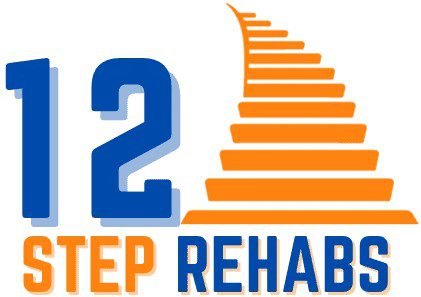Alcohol Addiction
Alcohol Addiction: Definition, Signs, Side Effects, and Treatment
Alcohol addiction, often called Alcoholism or Alcohol Use Disorder (AUD), is a challenging and deeply personal struggle. It’s more than just the occasional drink with friends; it’s a relentless compulsion to drink, even when it’s hurting your health, relationships, and well-being. For those caught in its grip, it can feel like alcohol is in control, making it hard to see a way out.
Alcohol interacts with neurotransmitters in the brain, particularly dopamine and the Gamma-Aminobutyric Acid (GABA) system , which are involved in pleasure and relaxation. Over time, the brain becomes dependent on alcohol to feel “normal,” leading to a cycle of abuse that is difficult to break. This addiction not only impacts an individual’s mental and physical health but also alters their behaviour, leading to issues such as impaired judgement, loss of self-control, and an increased likelihood of engaging in risky activities.
How Common is Alcohol Addiction?
Alcohol addiction is a significant public health issue, affecting millions of people globally. According to the World Health Organization (WHO), approximately 400 million individuals, representing 7% of the global population aged 15 and older, are affected by alcohol use disorders. Among them, 209 million people, or 3.7% of adults worldwide, experience alcohol dependence. The prevalence of alcohol addiction varies by region, with higher rates often observed in countries with higher alcohol consumption and fewer restrictions on its availability.
Understanding alcohol addiction is crucial not only for those directly affected but also for society at large. The impact of alcohol addiction extends beyond the individual, influencing families, communities, and even entire economies. Socially, alcohol addiction can lead to strained relationships, domestic violence, and child neglect. Culturally, it may perpetuate harmful stereotypes and stigmatisation, making it harder for those struggling with addiction to seek help.
Why is Using Alcohol Addictive?
Alcohol’s addictive nature is rooted in its ability to alter brain chemistry and create pleasurable sensations. When consumed, alcohol stimulates the release of dopamine, a neurotransmitter associated with the brain’s reward system. This release creates a euphoria or relaxation, reinforcing the desire to drink more. According to a review by Harvard University, alcohol scientifically affects the GABA system, which produces calming effects on the brain and body. Over time, the brain begins to rely on alcohol to maintain these dopamine and GABA levels, leading to tolerance, where more alcohol is needed to achieve the same effects.
The addictive potential of alcohol is further amplified by its impact on decision-making and impulse control. Alcohol impairs the prefrontal cortex, the part of the brain responsible for rational thought and self-control. This impairment makes it harder for individuals to resist the urge to drink, even when they recognise the harmful consequences. Moreover, genetic factors can predispose individuals to alcohol addiction. Studies have shown that certain genetic variations can influence how the body metabolises alcohol and how the brain responds to its effects, making some people more susceptible to addiction than others.
Is Alcohol Addictive from the First Try?
While not everyone who tries alcohol becomes addicted, the risk of developing an addiction increases with use. For most people, the first drink may not lead to addiction, but it can set the stage for future dependency, especially if alcohol is used as a coping mechanism for stress or emotional distress. The likelihood of addiction depends on various factors, including genetic predisposition, the individual’s psychological state, and the social environment in which alcohol is consumed. Some people may experience pleasurable effects after the first use, which can encourage repeated consumption and increase the risk of developing a dependency over time.

Signs of Alcohol Addiction
Spotting the signs of alcohol addiction early can make all the difference in getting the help needed. If you or someone you care about is struggling, these warning signs might be the key to starting the journey to recovery:
- Physical Signs: These include frequent hangovers, a high tolerance for alcohol, withdrawal symptoms such as shaking, sweating, or nausea when not drinking, and neglect of personal hygiene and health.
- Psychological Signs: These involve cravings for alcohol, anxiety or depression when unable to drink, and denial of the problem despite evident negative consequences.
- Behavioural Signs: These include drinking alone or in secret, prioritising alcohol over other responsibilities, loss of interest in previously enjoyed activities, and continuing to drink despite problems in relationships, work, or health.
Causes, Effects, and Treatments of Alcohol Addiction
Causes of Alcohol Addiction
Alcohol addiction is a complex condition with multiple contributing factors:
- Genetic Factors: Research indicates that genetics play a significant role in the development of alcohol addiction. Those that have a family history of alcoholism are at a higher risk of developing the disorder themselves.
- Psychological Factors: Mental health disorders, such as depression, anxiety, or post-traumatic stress disorder (PTSD), often co-occur with alcohol addiction. People may turn to alcohol as a form of self-medication, which can quickly lead to dependency.
- Social and Environmental Factors: Social pressure, availability of alcohol, cultural attitudes towards drinking, and exposure to environments where alcohol use is normalised can all contribute to the development of alcohol addiction.
Side Effects of Alcohol Addiction
Short-Term Effects:
Alcohol consumption, especially in large quantities, can lead to several immediate side effects, including:
- Slurred speech and impaired coordination
- Memory blackouts or lapses
- Risky behaviours such as drunk driving or unprotected sex
- Alcohol poisoning, which can be life-threatening if untreated
Long-Term Effects:
Chronic alcohol abuse can cause severe and lasting damage to the body and mind, including:
- Liver disease, such as cirrhosis or hepatitis
- Cardiovascular issues, including high blood pressure and heart disease
- Mental health disorders such as depression, anxiety, or cognitive decline
- Increased risk of certain cancers, such as those of the liver, throat, and oesophagus
Treatment Methods for Alcohol Addiction
Effective treatment for alcohol addiction often requires a comprehensive approach, combining medical, psychological, and social support.
- Rehabilitation Programs: Inpatient rehab provides a structured environment where individuals can focus entirely on detox and recovery. Studies in the US show that those who complete residential rehab are more likely to maintain long-term sobriety compared to outpatient programs.
- Cognitive Behavioural Therapy (CBT): CBT is an evidence-based approach that helps individuals understand and change the thought patterns that lead to alcohol use. By addressing the cognitive distortions and behaviours that contribute to addiction, CBT can be an effective tool in long-term recovery.
- 12 Step Model: Originally developed by Alcoholics Anonymous (AA), this approach has been embraced by numerous recovery programs across the globe. Since then, it has gained recognition as one of the most effective methods for treating addiction. The program is structured to lead individuals through a journey of self-reflection, admission of past mistakes, making amends, and nurturing spiritual development. It also recognizes addiction as a chronic condition that necessitates ongoing support, offering access to 12 Step meetings worldwide to help individuals establish a support network that continues beyond formal treatment.
- Aftercare Programs: Continued support after initial treatment is crucial for preventing relapse. Aftercare programs may include ongoing counselling, sober living environments, and peer support groups that help individuals stay on track and build a fulfilling life without alcohol.
How is Alcohol Withdrawal Treated?
Alcohol withdrawal and overdose are treated with immediate medical care. In the case of alcohol overdose (alcohol poisoning), the focus is on stabilising vital signs, which may involve intravenous fluids, oxygen therapy, and monitoring heart and breathing rates. Medications may be administered in severe cases to prevent seizures or other complications.
For alcohol withdrawal, treatment may often include benzodiazepines to manage symptoms such as anxiety, seizures, and delirium tremens. Nutritional support, particularly thiamine, is provided to prevent complications like Wernicke-Korsakoff syndrome. Both conditions require close monitoring in a medical setting to manage symptoms and prevent life-threatening complications.
How Can You Help a Person with Alcohol Addiction?
Supporting someone with alcohol addiction requires empathy, patience, and an understanding of the challenges involved in recovery. Here are some steps you can take:
- Encourage Open Communication: Approach the person with care and express your concerns without judgement. Let them know you are there to support them, not criticise or condemn.
- Educate Yourself: Understanding the nature of alcohol addiction can help you provide more effective support. Learning about the physical and psychological aspects of addiction, as well as treatment options, will enable you to offer informed advice.
- Encourage Professional Help: It’s essential to recognize that quitting alcohol is incredibly difficult to do alone. Encourage the person to seek help from addiction counsellors, clinics, or rehab centres. Professionals can provide the necessary guidance and resources to facilitate recovery.
- Explore Treatment Options Together: Assist the person in exploring available options, such as counselling, inpatient or outpatient rehab, and aftercare programs. This might involve researching local services or attending support groups together.
Taking the first step toward recovery can feel overwhelming, but with the right support and resources, it is within reach. At 12 Step Rehabs, we strive to ease these concerns by guiding you or your loved one toward the most suitable treatment options available. Our consultants are friendly, compassionate, and understanding, each having personal experience with recovery and collectively boasting 25 years of sobriety through the 12 Step model. Book your free initial consultation now for personalised support and the next step toward a healthier, sober life.

